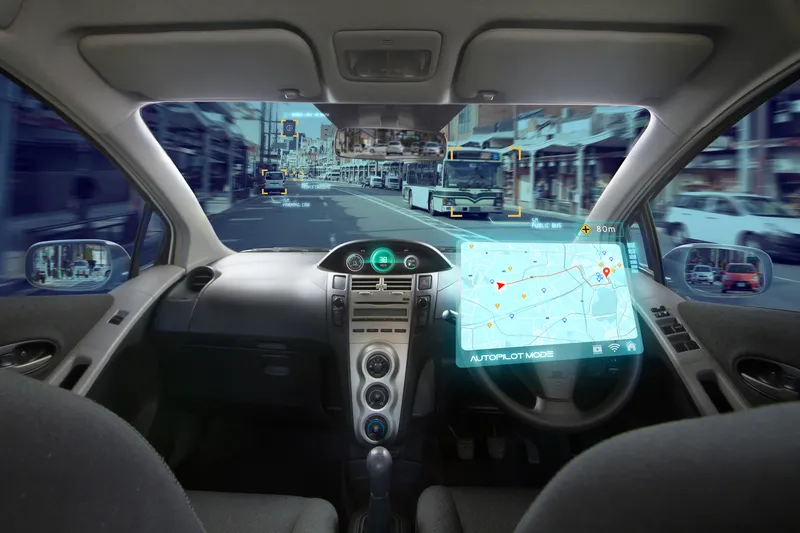The UK government Transport Select Committee has called for a Visionary UK strategy to maximise benefits of new motoring technology in its report, Motoring of the Future. The committee says new automotive technologies could unblock congested highways, deliver a step change in road safety and provide the basis for rapid industrial growth, but the Department for Transport (DfT) will need to develop a comprehensive strategy to maximise the benefits of new motoring technology, such as telematics and driverless
March 6, 2015
Read time: 3 mins
RSSThe UK government Transport Select Committee has called for a Visionary UK strategy to maximise benefits of new motoring technology in its report, Motoring of the Future.
The committee says new automotive technologies could unblock congested highways, deliver a step change in road safety and provide the basis for rapid industrial growth, but the1837 Department for Transport (DfT) will need to develop a comprehensive strategy to maximise the benefits of new motoring technology, such as telematics and driverless cars, for people and businesses in the UK.
Following its wide-ranging inquiry, the committee calls on the DfT to: Clarify how the introduction of self-driving cars will affect the liabilities of drivers, manufacturers and insurers; Positively engage in setting European and international standards that will help UK manufacturers develop products suitable for export; Ask the Information Commissioner to update guidelines on the collection, access and use of vehicle data; Use data on driver behaviour held by the insurance industry and others to inform policy making and improve road safety.
Launching the report, Louise Ellman MP, Chair of Transport Committee said: "Motoring is being transformed by new materials, new fuels and information technology. The Government must do more to ensure that people and businesses in the UK benefit from this once-in-a-lifetime opportunity."
She added: "The public need to be sure that new types of vehicles are safe to travel on our roads. The Government must do more to prepare for a transition period where manual, semi-autonomous and driverless vehicles will share UK roads. Transport Ministers must explain how different types of vehicles will be certified and tested, how drivers will be trained and how driving standards will be updated, monitored and enforced."
The6187 Institute of Advanced Motorists gave evidence to the committee; IAM director of policy, Neil Greig responded to the report, saying: “The next few years could see a confusing combination of computer and human-controlled vehicles on our roads so the legal framework must be clear on who is responsible in the event of a crash. The way we train drivers will have to change to reflect this.
"The committee recognised our concerns about data protection. Computerised vehicles will generate information on an epic scale. In the not so distant future a hacker could do more damage than a drunk driver. Getting system security right must be a top priority.”
Nathan Marsh, Smart Infrastructure leader at EY, also commented on the report: “The future of the UK’s integrated transport infrastructure will require adoption of smart technology. Autonomous vehicles across smart cities will be an integral part of this.
“The technology exists already with innovative ideas and pilot projects, such as driverless cars being trialled in Milton Keynes. However the reluctance for change and adoption by the motor industry, drivers and the lack of legislation means the brakes are on for now.
“We need to accelerate the development of huge scale projects, that are commercially viable and that can be integrated to the existing road network, or else the UK’s infrastructure potential will be consigned to the slow lane.”
The committee says new automotive technologies could unblock congested highways, deliver a step change in road safety and provide the basis for rapid industrial growth, but the
Following its wide-ranging inquiry, the committee calls on the DfT to: Clarify how the introduction of self-driving cars will affect the liabilities of drivers, manufacturers and insurers; Positively engage in setting European and international standards that will help UK manufacturers develop products suitable for export; Ask the Information Commissioner to update guidelines on the collection, access and use of vehicle data; Use data on driver behaviour held by the insurance industry and others to inform policy making and improve road safety.
Launching the report, Louise Ellman MP, Chair of Transport Committee said: "Motoring is being transformed by new materials, new fuels and information technology. The Government must do more to ensure that people and businesses in the UK benefit from this once-in-a-lifetime opportunity."
She added: "The public need to be sure that new types of vehicles are safe to travel on our roads. The Government must do more to prepare for a transition period where manual, semi-autonomous and driverless vehicles will share UK roads. Transport Ministers must explain how different types of vehicles will be certified and tested, how drivers will be trained and how driving standards will be updated, monitored and enforced."
The
"The committee recognised our concerns about data protection. Computerised vehicles will generate information on an epic scale. In the not so distant future a hacker could do more damage than a drunk driver. Getting system security right must be a top priority.”
Nathan Marsh, Smart Infrastructure leader at EY, also commented on the report: “The future of the UK’s integrated transport infrastructure will require adoption of smart technology. Autonomous vehicles across smart cities will be an integral part of this.
“The technology exists already with innovative ideas and pilot projects, such as driverless cars being trialled in Milton Keynes. However the reluctance for change and adoption by the motor industry, drivers and the lack of legislation means the brakes are on for now.
“We need to accelerate the development of huge scale projects, that are commercially viable and that can be integrated to the existing road network, or else the UK’s infrastructure potential will be consigned to the slow lane.”









